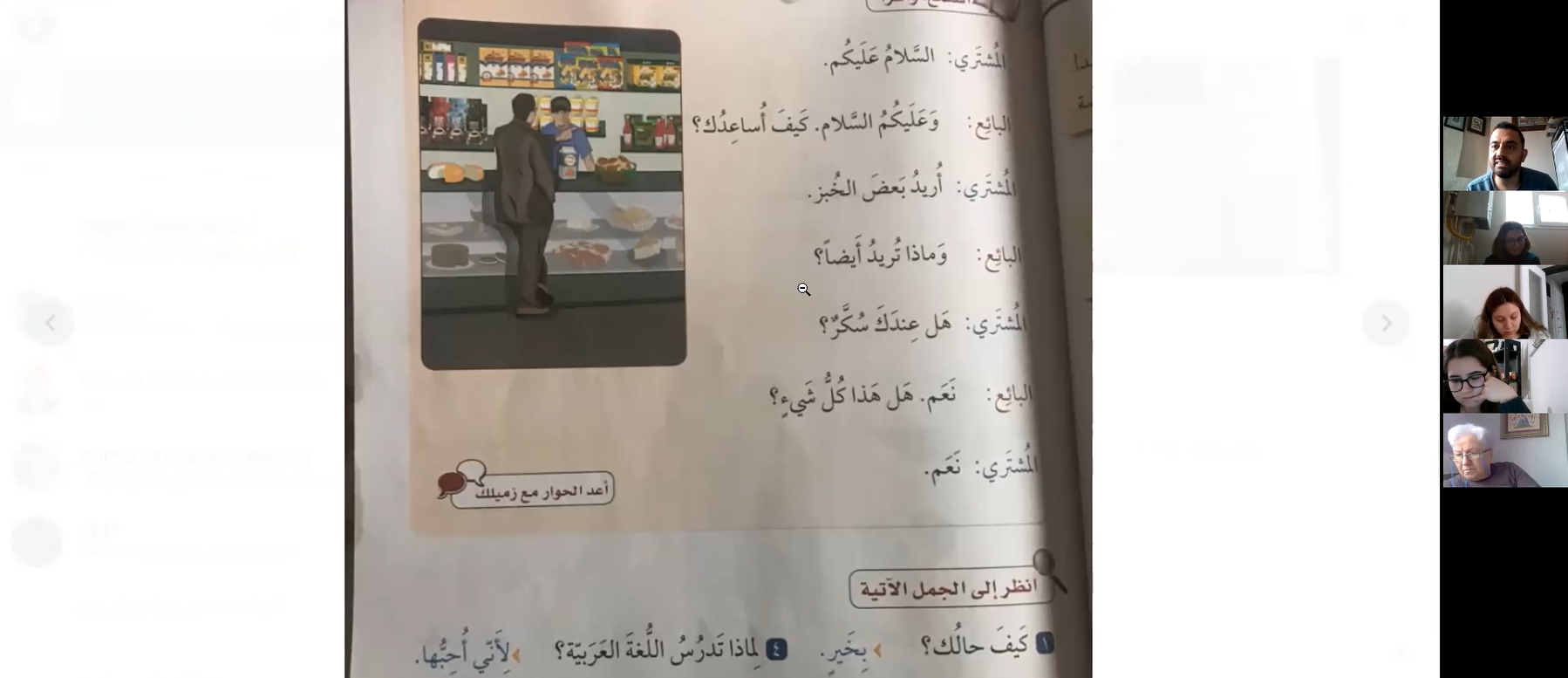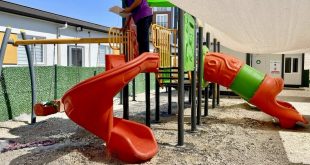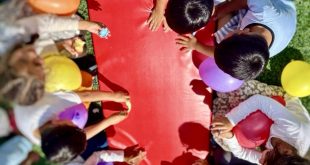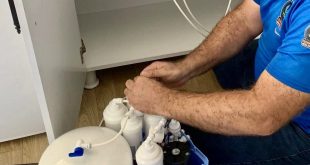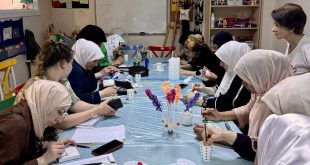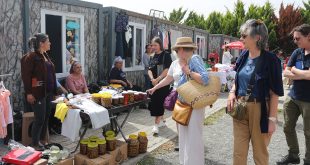Mavi Kalem Internal Capacity Building Activities
Arabic Literacy Strengthening
Effective communication for better quality service…
One condition of being able to communicate effectively with the people we work with is to provide services in their mother tongue.
We have also been working with Syrian refugees since 2012. In order to communicate correctly and effectively, we first create teams that can speak Arabic.
We have a partial advantage in this regard in Turkey because there is a population that can speak Arabic. However, learning Arabic as the language spoken in the family caused it to be used only as a spoken language, and literacy did not develop because it was not needed in daily life.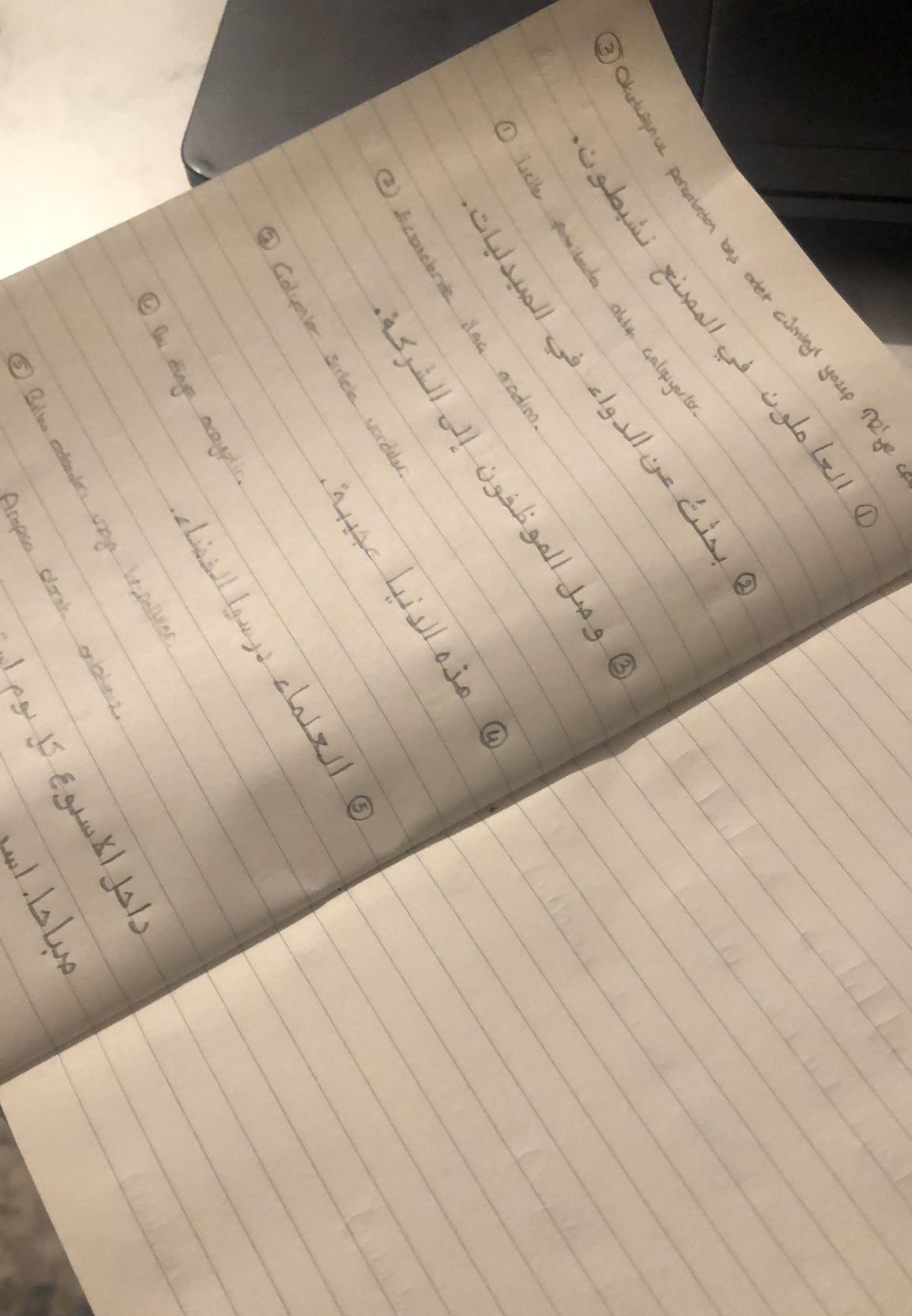
In some of our work, we work with social workers who can speak Arabic but are illiterate. At the same time, we support them to have Arabic literacy skills.
In our work, we have to produce written Arabic documents. For example; presentations and booklets for trainings, presentations and guides for workshops, informational brochures and leaflets, as well as registration and approval forms are materials that must be in Arabic.
Most of the written feedback and evaluations received from the participants in the studies have content in the native language of the participants. Arabic literacy is also needed for communication carried out over communication groups on mobile communication platforms.
The execution of all these written processes through translators affects the quality of the service we provide, effective communication and the result.
Based on all these requirements, we decided to support our teammates, who primarily work with clients and have Arabic speaking skills, in literacy. Of course, to the extent that there is space, other teammates also participated in the study, optionally.
The impetus that motivated us in 2020 was to prevent communication problems, to increase the quality of our services and the skills of our colleagues.
On the other hand, speaking Arabic in dialects that differ from region to region sometimes causes our team members and clients not to understand each other clearly. The coordinator of the study, Dr. Ali Çağlar Deniz explains this situation as follows: “In Arabic; Standard Modern Arabic (Fusha), which is used as the language of science, culture, religion and art, and the dialect of the Arab peoples (Ammi), which varies from region to region, differ like two different languages. Since Fusha is also a written language used by the entire Arab world, people who do not know this language cannot follow the Arab media, for example, even if they can get along with other Arabs with the local Arabic dialect of about 200-300 words used in the countryside. When individuals who want to learn this language start living in an Arab country, they become familiar with the Arabic dialect of the region they live in (basically, dialects such as Levantine [Damascus], Golden Horn [Arabian Gulf], Necid [Hijaz], Egyptian, North African, Maltese, etc.). For this reason, Fusha lessons, which is the common written language in Arabic language education, are given all over the world.”
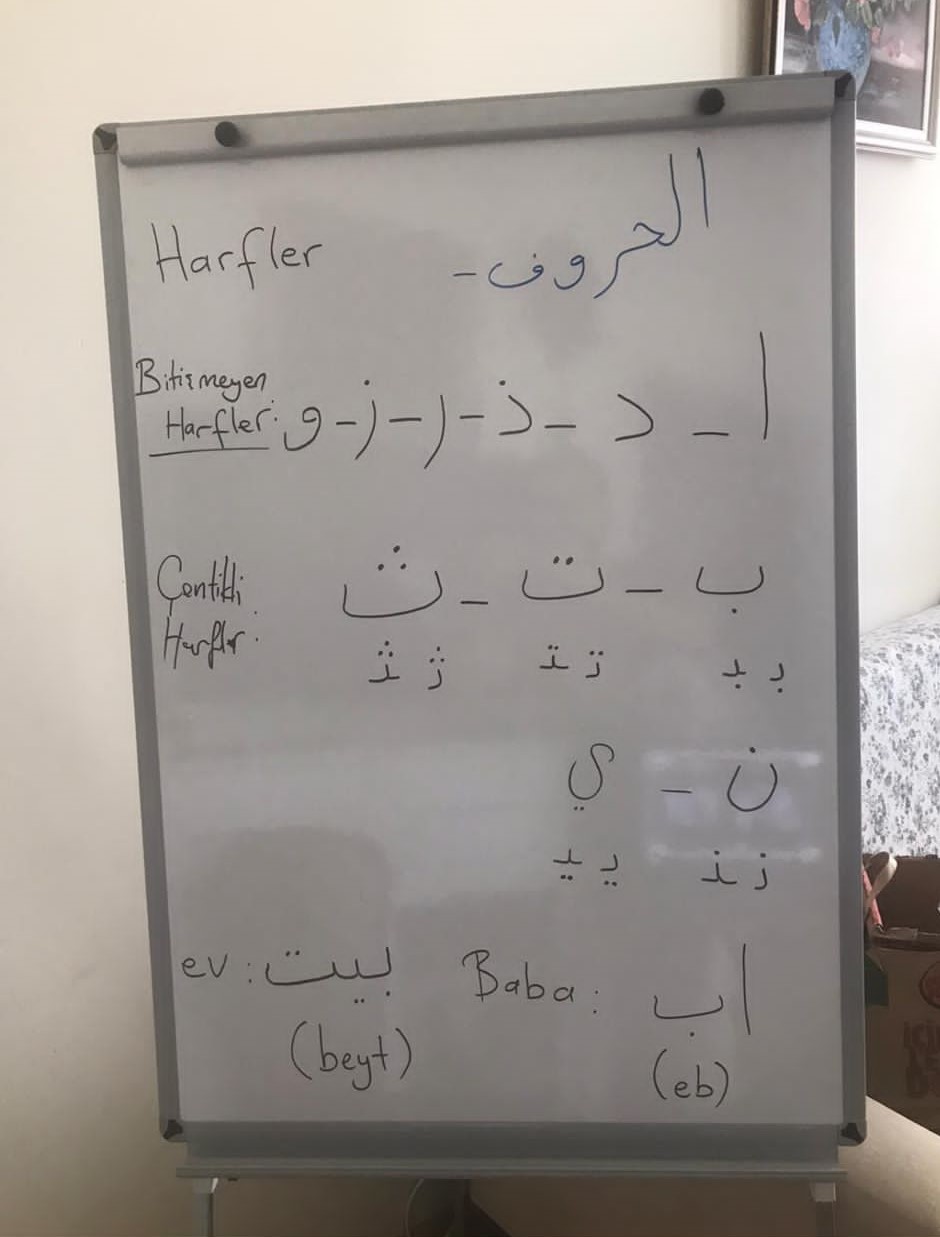 We have designed the Arabic literacy study as a foreign language support workshop and we encourage the participation of everyone concerned as much as possible. We prioritize the participation of team members such as social workers who work directly with our clients, those who provide counseling over the phone, activity implementers, information meeting implementers, and translators, but all team members can also benefit from this study if they wish.
We have designed the Arabic literacy study as a foreign language support workshop and we encourage the participation of everyone concerned as much as possible. We prioritize the participation of team members such as social workers who work directly with our clients, those who provide counseling over the phone, activity implementers, information meeting implementers, and translators, but all team members can also benefit from this study if they wish.
In our study that supports Arabic literacy; The focus is on Fusha Arabic, the dialects are briefly mentioned, and the differences between them and Fusha are given by emphasizing the dialects of the Syrians (Levantine, Ammi), which is one of our important working groups. At the same time, information is given on the terminology in our field of study. We also carry out special studies for translators, as we have observed that translators also need support regarding field terminology.
Participants of the study have a good command of recognizing letters in words, reading and writing, and acquaintance dialogues, as well as having knowledge of grammar subjects such as tezkir/tenis (masculine/femininity), demonstrative adjectives, noun and adjective phrase, noun clause.
This workshop, which we organized within the scope of internal capacity building activities, is run by by Dr. Ali Çağlar Deniz who has been supporting the “Male Participation in Women’s Empowerment” Workshop Series as the implementor and consultant since 2019. Deniz worked as an Arabic instructor at İSMEK for 5 years.
The workshop was designed to be applied separately and online to beginner and advanced groups of 6-7 people. Some of our teammates who participated in the studies completed the process and reached a level where they could improve their grammar and speaking skills. Despite all our facilitating and encouraging efforts, we also had team members who resisted participating in the workshop, which was held during working hours. The importance of the study, its purpose, and its contribution to their personal development were conveyed to them, but they were not made obligatory.
We follow-up the contributions of our work with the feedback of our workshop participant team members, whose examples are shared below. By improving our work in line with their needs, we aim to continue to strengthen our teams in Arabic literacy in the coming years.
Participant Impressions:
“The fact that the Arabic workshop was held by explaining the cultural and linguistic relations not only made it easier for us to learn the language, but also helped us to use this cultural knowledge in our work. Sharing Arabic music and news samples allows us to get to know the language with all its aspects. In particular, the practice towards meeting beneficiaries enables us to overcome the obstacles in our ability to speak Arabic more easily. It encourages us to express ourselves in such a difficult language.” Tiraje Zeynep Yüregir (Consultant-Social Psychologist)
“I get translator support when I work with Syrian women who cannot speak Turkish at the activities I do. After participating in the Arabic Workshop, I can now express myself in Arabic, at least in the acquaintance phase. I still cannot say that I speak fluently, but I can understand what is spoken. Being able to speak their language gives incredible confidence to the other party and creates cohesion. I love my job and I can convey my feelings with my body language, but speaking the same language made a great difference for both me and them. We practice speaking with a native Arabic speaker. At first, I learnt by heart. For example, the sentence “Women are strong!” Arabic Workshop has been a great achievement for me. The information given about the harmony between languages and the unifying features was also very important. For example, I did not think that there are so many Arabic and Persian words in Turkish. After starting this workshop, I realized that there are more Arabic and Persian words in our language than I expected. Because in this process, we learned a lot about Semitic languages, or rather all languages. This workshop was originally aimed at field workers, but I also wanted to participate and followed it with enthusiasm. If I work by repeating and working hard, my earnings will increase. The information I received on language culture were subjects that I did not know how to ask, even if I wanted to learn. I would like to thank Mavi Kalem and our teacher for providing this support. It has been one of the most rewarding things I have ever done in my life.” H. Hülya Kazancı (Art Instructor)
“I did not know Arabic. I have been attending the Arabic Workshop for a year. I have been meeting with Syrian men for the last two months. I take part in the focus group discussion as an observer. Even though I don’t fully understand their speech, I now have an idea. There are forms that we use as written material while doing my job. Understanding written language is important. Previously, I was able to master the subject only when I read the Turkish report. Now I can have some ideas in meetings. A familiarity with words developed. I improve slower than friends with a foundation. Speaking practices are very helpful. My knowledge of Arabic is not yet at a level that I can use while working with our clients, but I want to improve it. Since I work in the field of migration, I want to communicate without an interpreter, without a language barrier in between. The person in front of me sometimes says something by crying, but when there is an interpreter or a need for translation, this feeling does not transfer to me instantly, there is a language barrier. Until I understand it, the other party digests that feeling. What I want is to understand the other side without a language barrier and to capture that emotion in time. I need to work harder and concentrate.” İlayda Hanım Kılıç (Assistant Mentor)
“I am from Hatay and my mother tongue is Arabic. Within the family we use a different Arabic with a lot of Turkish words. After I started working at Mavi Kalem, I started contacting Syrian beneficiaries. Before, I didn’t have to use Arabic outside of the family. At that stage, a learning process began. The dialect used by the Syrians, ‘Ammi’, is very similar to the Arabic we use. I was comfortable getting along with them, but I was having difficulty understanding our clients from different regions. When I started this workshop, my expectation was to learn to read and write. I had tried to learn before, but I was attending short courses in the summer, they always remained unfinished. I have benefited greatly from attending these workshops regularly. Now I can read and write. One must continue without a break. Our clients usually communicate with us via mobile phone messages. We have contact groups on the phone. Since I was illiterate, I always wanted them to make audio recordings, or I asked my literate friends for help. Sometimes I used translation programs, but I was uneasy because I could not be sure of the accuracy of the translation. It is particularly important to fully understand what they are saying, especially in case processes. For example, when they showed me a message that was sent to them, I was asking if they could please read it to me or I was asking my friends at the office for help. Now, although I do not conduct a one-on-one case study, I am always in the office, and I can manage those situations without help. Continuous practice in this workshop and learning Standard Arabic and reading and writing skills helped me a lot while doing my job. Now I can support my friends. Since I know Arabic, I have no problem understanding what I read. Thus, I strengthened my knowledge of Arabic. I had an awareness in terms of comparison of Ammi and Standard Arabic. There are differences alongside the similarities. Among our beneficiaries, those who can read and write know Standard Arabic. Because it is a language they learn and use in schools. But they also speak in their own dialect. When we don’t understand each other, the language we meet in the middle is Standard Arabic. I feel freer. Now I can produce faster solutions without having to consult anyone. I am still in the learning phase, but it takes personal effort to improve.” Sevda Akan Ataş (Women’s Consultation Center Coordinator)
“I have been attending the workshop for nine months. I knew Arabic, but I could not read or write. My mother is of Arab descent. I knew the letters, but I forgot in time. I remembered again with this workshop. I still can’t read fluently, but it will improve. I know Ammi dialect in Arabic. For example, “home” means “beyt” in Arabic, but in Fusha “menzil” also means home. Now I know that when someone says menzil, it means home. In our work with men, moderatör speaks in Fusha. When I participate in that study, I can understand the moderator more easily now. I’m not very good at handwriting, but I’m comfortable using the keyboard on the phone. I mostly use verbal communication in my work. Our beneficiaries use “Ammi” in their daily life and “Fusha” in their education life. Those who are educated also know Fusha. Now I understand Fusha texts. My Arabic speaking has also improved since I started working at Mavi Kalem. I use it more. Now I can read a book in Arabic if I try. I must improve it with personal effort. When you know Arabic, you catch facial expressions, but when translation intervenes, you cannot establish a natural dialogue, the spontaneity of communication is lost. Language proficiency of field workers is especially important in terms of communication.” Yeşim Nur Özdemir (Social Worker)
 Mavi Kalem Sosyal Yardımlaşma ve Dayanışma Derneği Hayata Rengini Kat!
Mavi Kalem Sosyal Yardımlaşma ve Dayanışma Derneği Hayata Rengini Kat!


